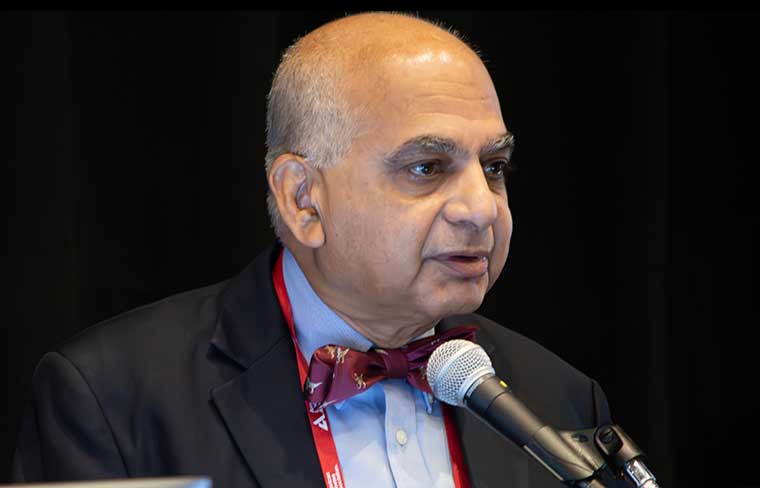-

Standards of Care in Overweight and Obesity updates help optimize care for patients and clinicians
Louis J. Aronne, MD, DABOM, and Kim Gudzune, MD, MPH, led an overview of the newly developed guidance, which provides clinicians, researchers, policy makers, and others with the components of obesity care, general treatment goals, and tools to evaluate the quality of care.
-

Investigators spotlight innovative bioengineering efforts for beta cell replacement therapy
Michael R. Rickels, MD, MS, and others shared results from FORWARD-101, which studied an investigational stem cell-derived, fully differentiated islet cell therapy for people with type 1 diabetes with impaired hypoglycemic awareness and severe hypoglycemic events.
-

Diabetes Care Symposium examines how to fix a health care system driven by drug prices
Seth A. Berkowitz, MD, MPH, and other panelists discussed the challenges facing the U.S. health care system and how policy changes could address them.
-

Monoclonal antibody-peptide conjugate demonstrates efficacy as once-monthly treatment for obesity
Researchers, including Ania M. Jastreboff, MD, PhD, detailed the results of a phase 2 study of maridebart cafraglutide for inducing weight loss in adults living with obesity, with or without type 2 diabetes.
-
BELIEVE spotlights quality and quantity approach to weight management with combo therapy
Steven B. Heymsfield, MD, and other panelists discussed how bimagrumab can preserve the weight reduction seen with semaglutide while also improving body composition.
-
CATALYST shows mifepristone for hypercortisolism in type 2 diabetes reduces A1C, weight
Vivian Fonseca, MD, and other investigators explained the results of the largest prospective study to date of hypercortisolism in difficult-to-treat diabetes and pharmacotherapy of hypercortisolism.
-
Add-on therapy improves glycemic outcomes and weight loss in adults living with type 1 diabetes and obesity
Researchers, including Viral N. Shah, MD, shared findings from phase 2 of the ADJUST-T1D study for the first time at the Scientific Sessions in Chicago. Once-weekly semaglutide enhanced the efficacy of automated insulin delivery alone in meeting time-in-range and weight-reduction targets.
-
Experts contrast heart and kidney diseases in type 1 and type 2 diabetes
Robert H. Eckel, MD, Silvio Litovsky, MD, and Anand Srivastava, MD, MPH, explored differences between type 1 and type 2 diabetes in respect to cardiovascular and kidney complications, then interpreted what this means for future research and ongoing clinical care.
Presenter Profiles











